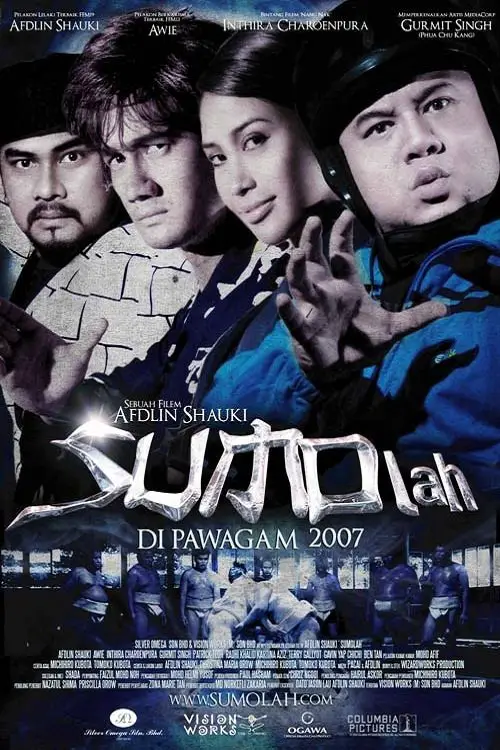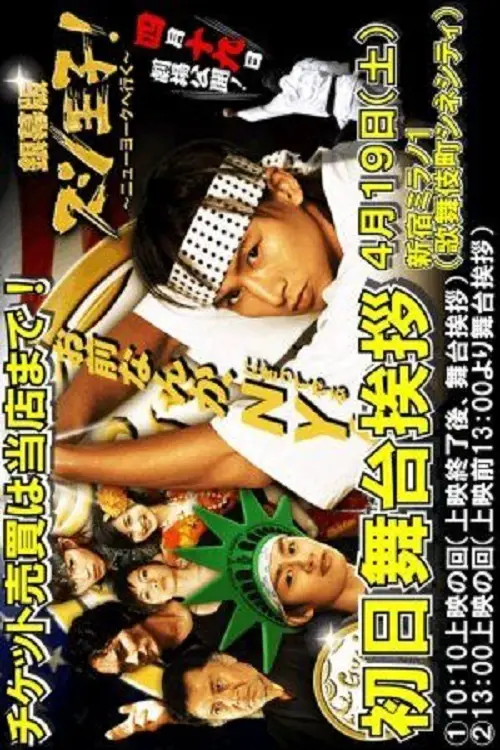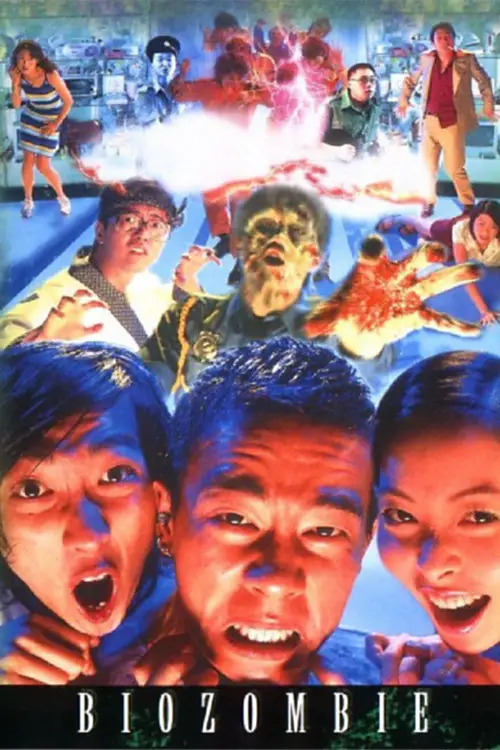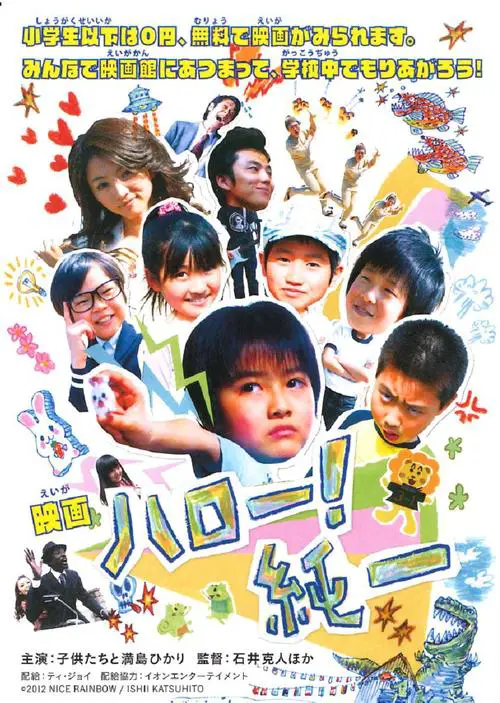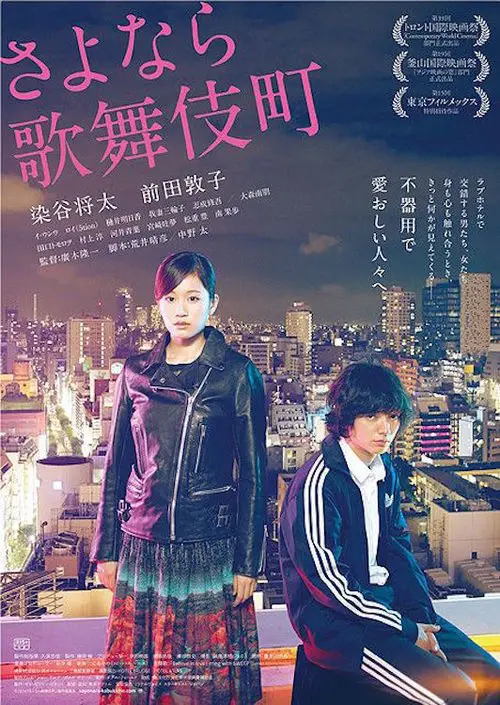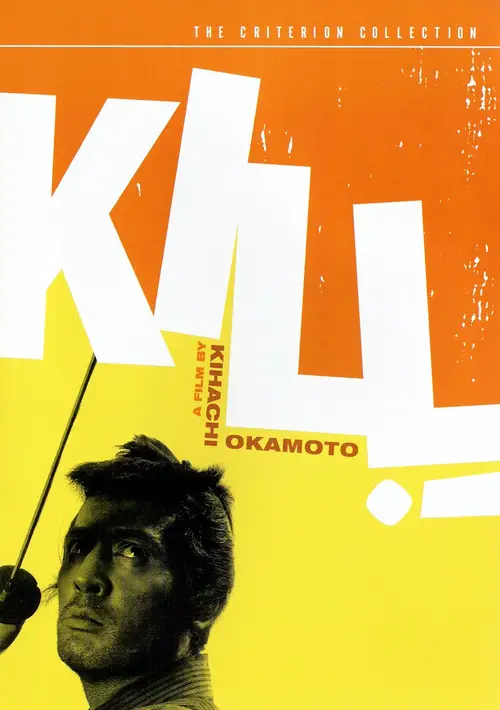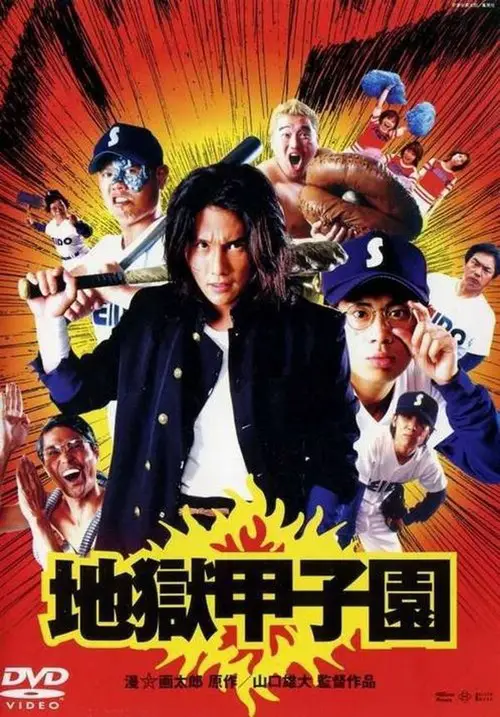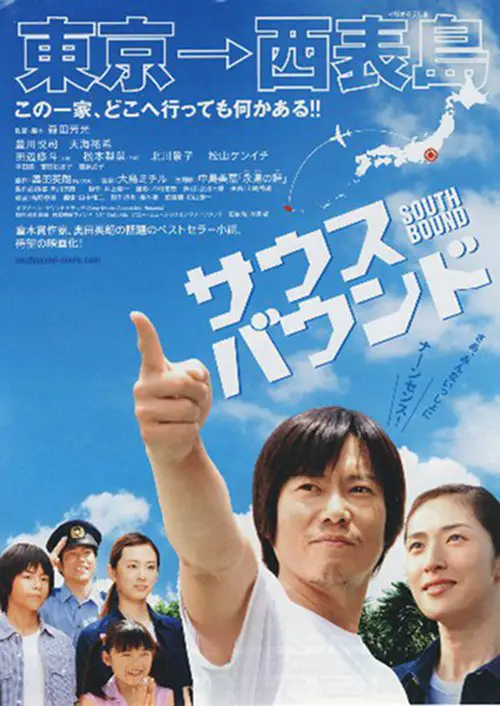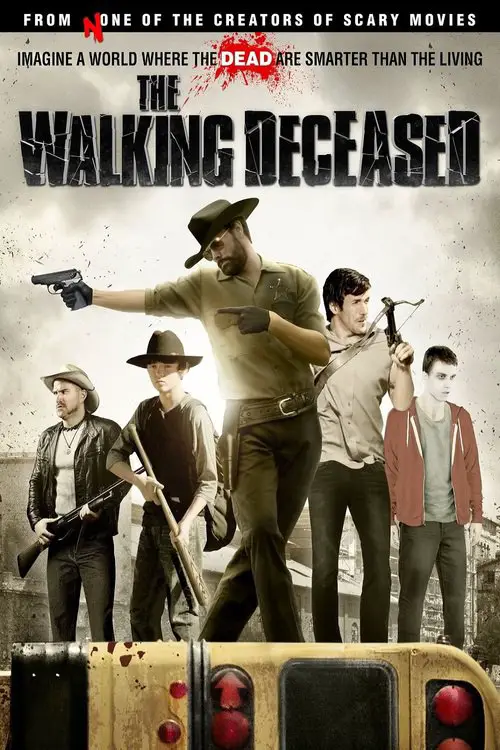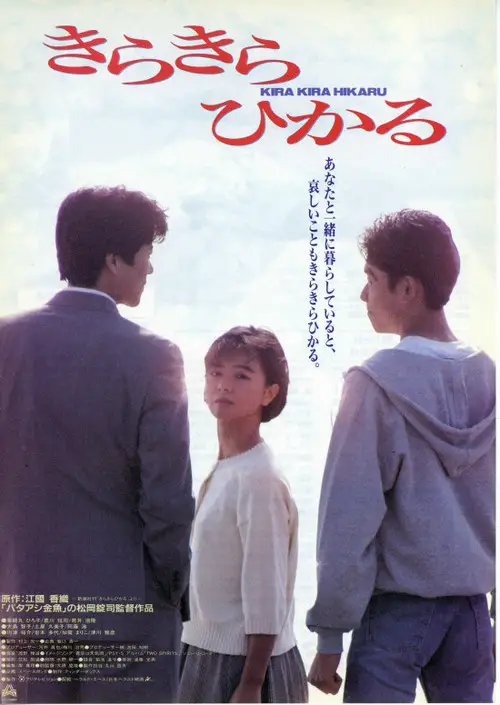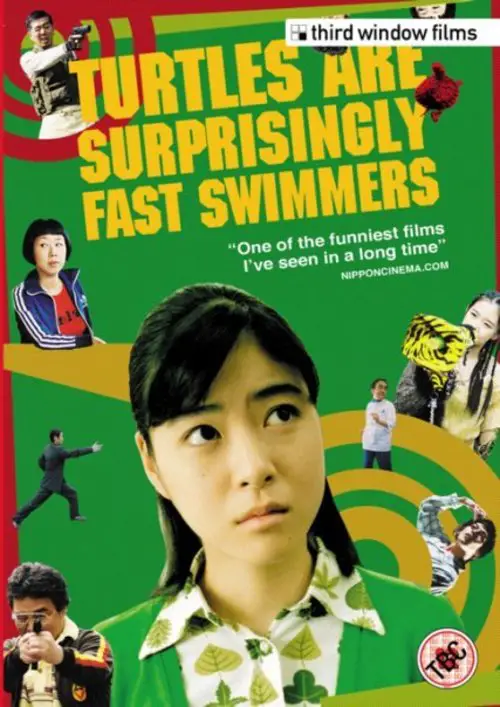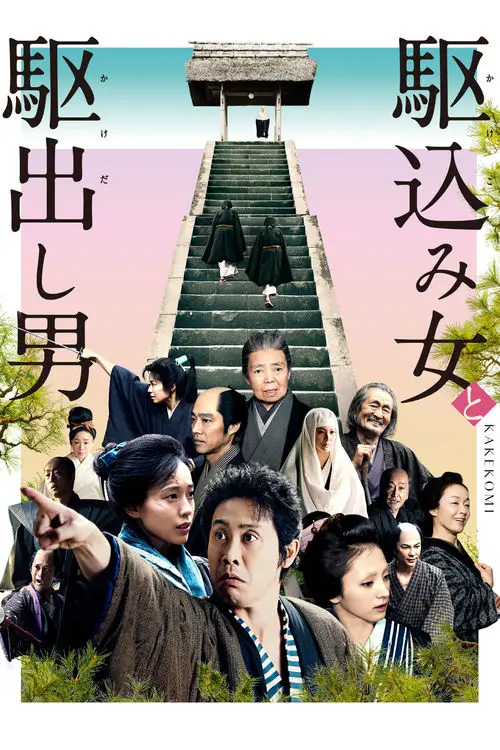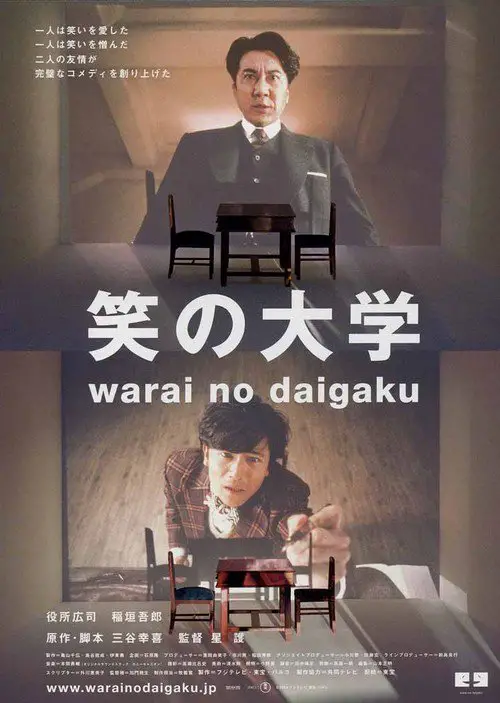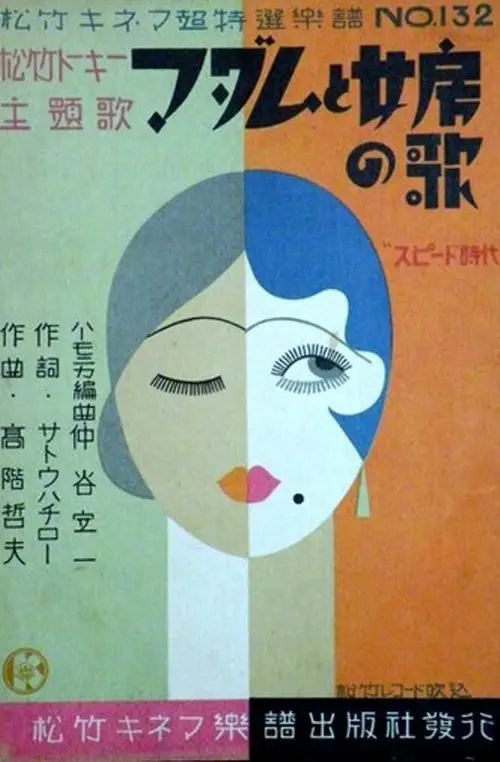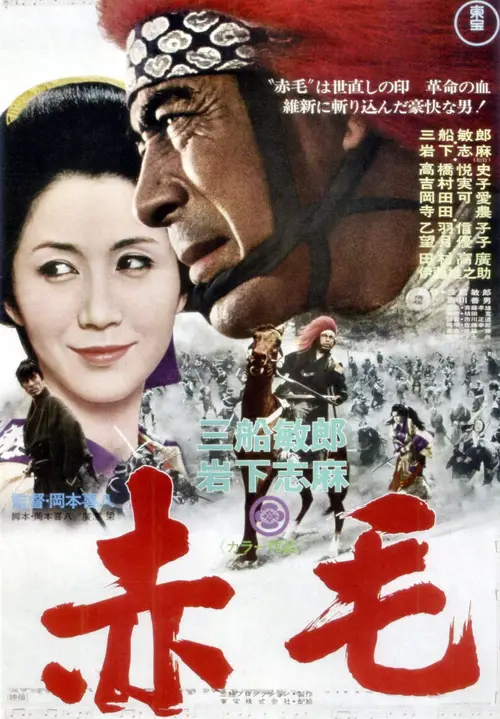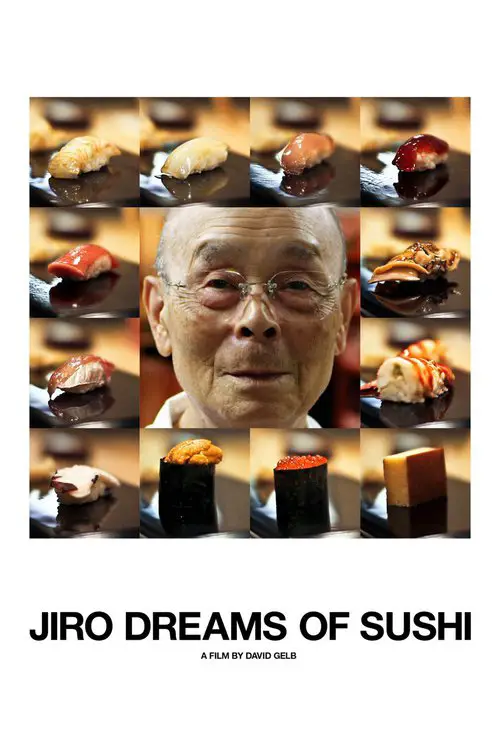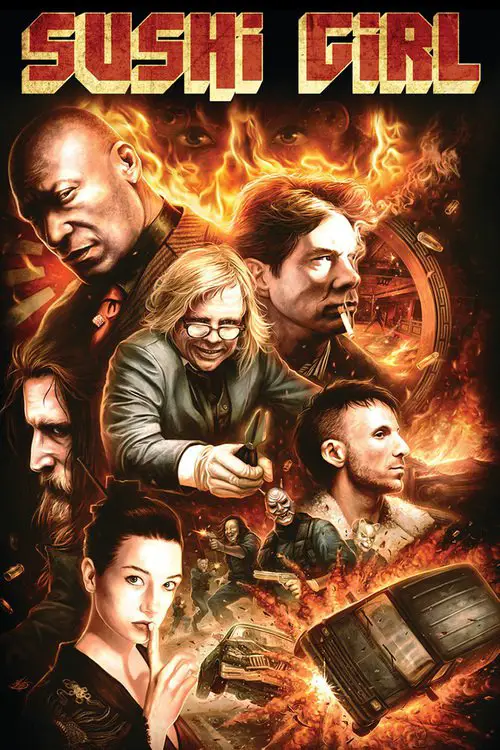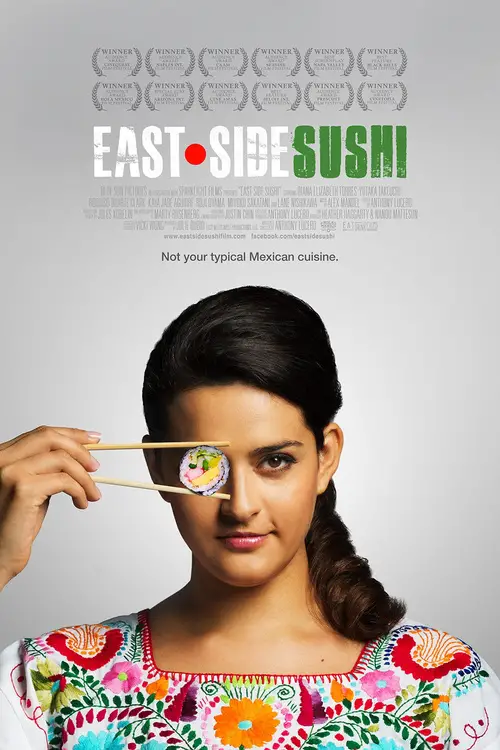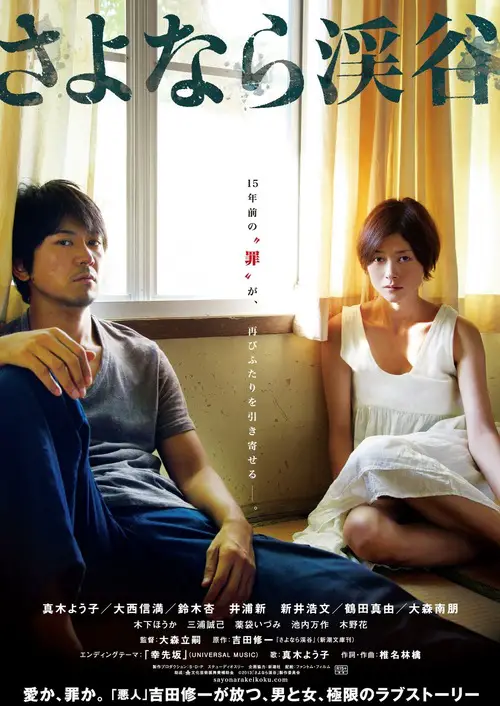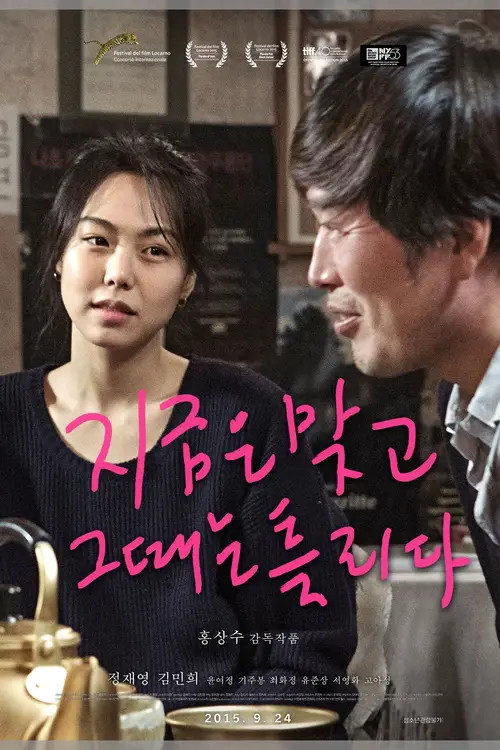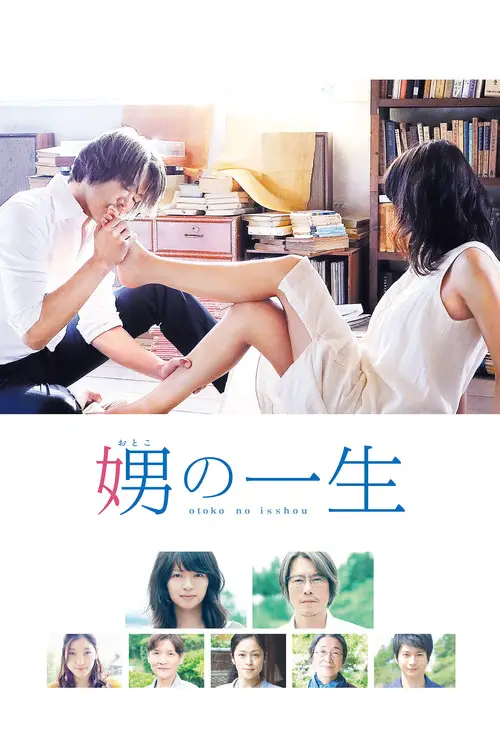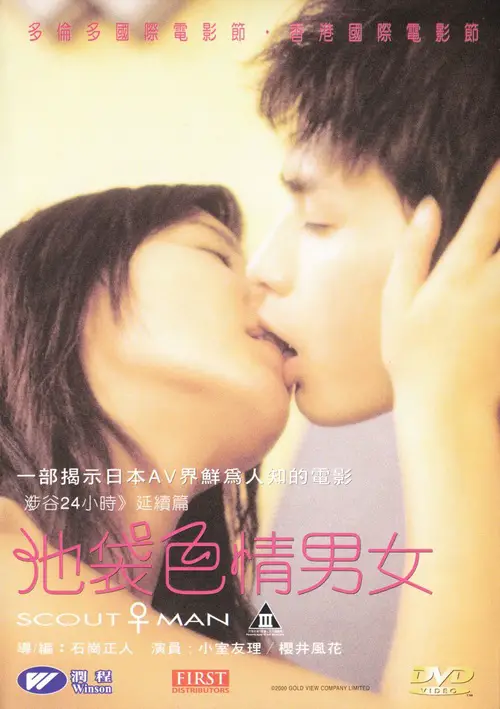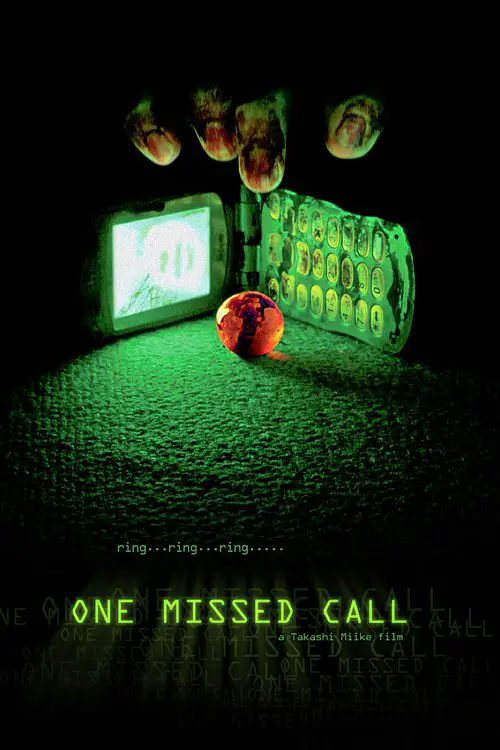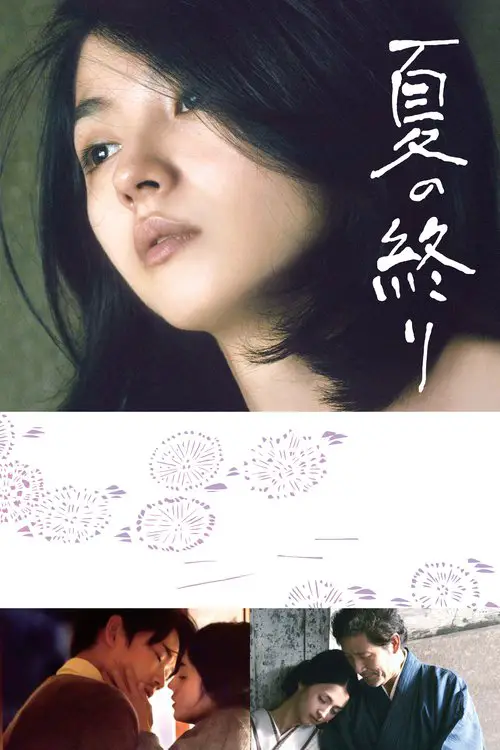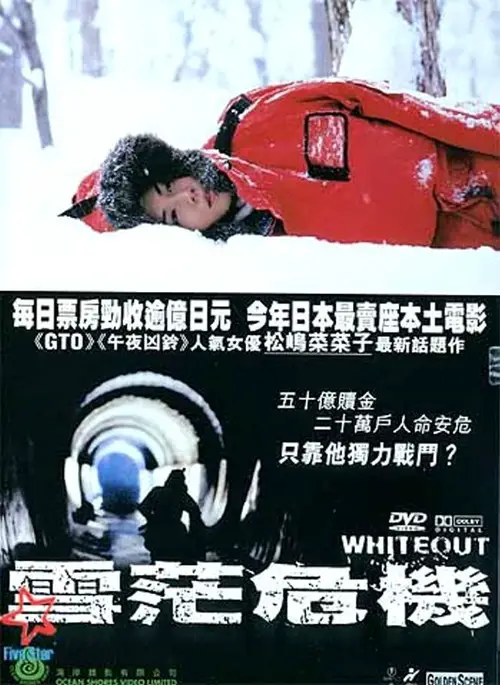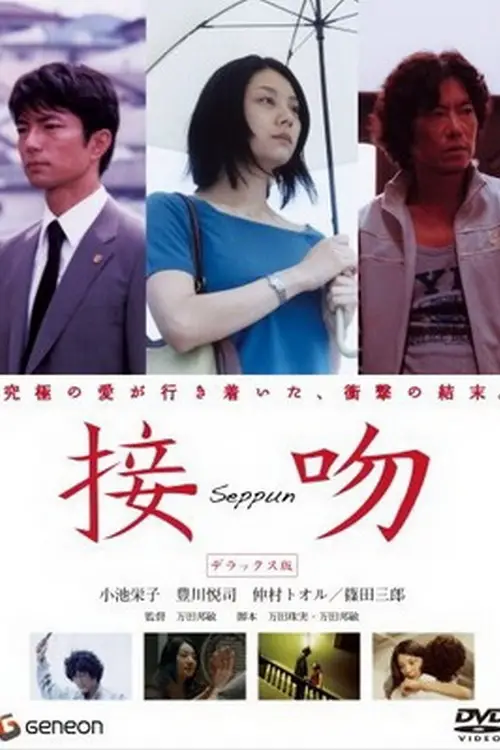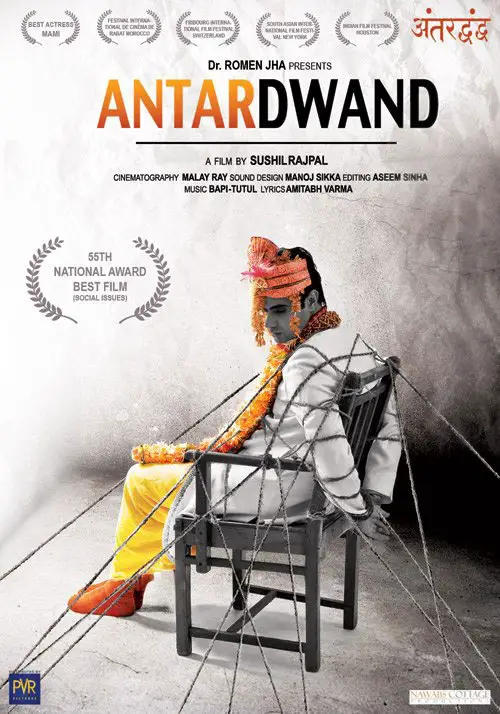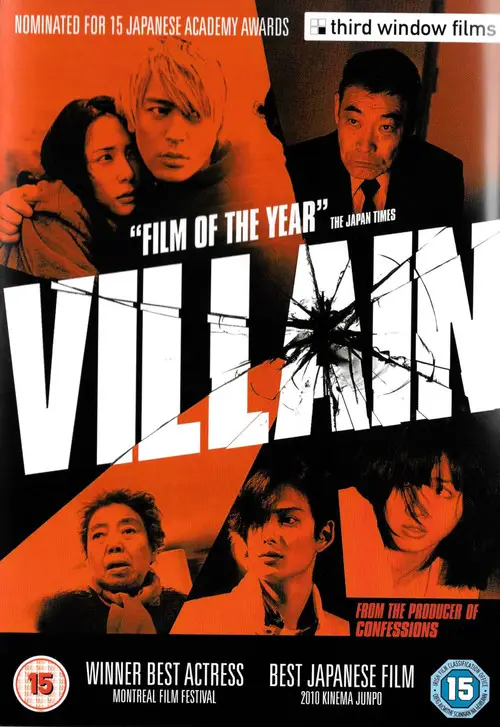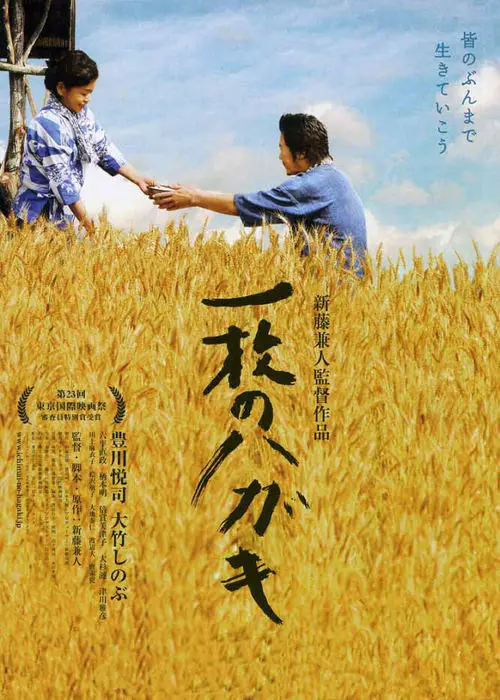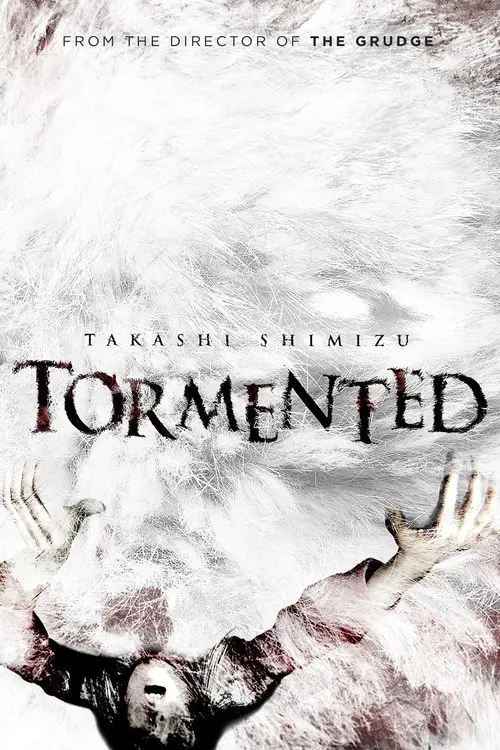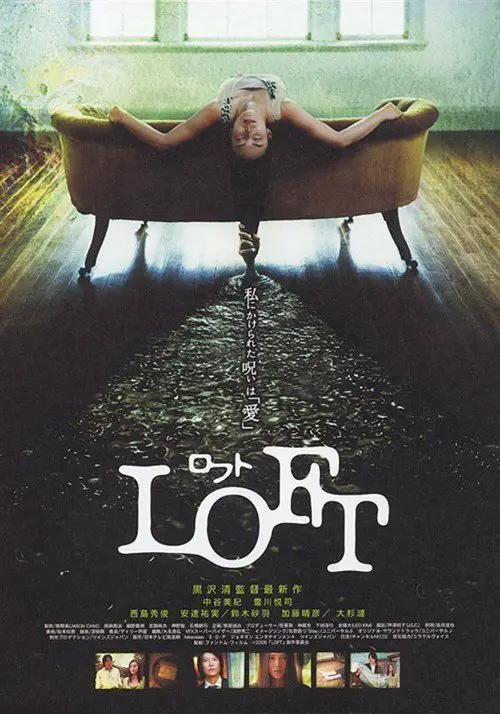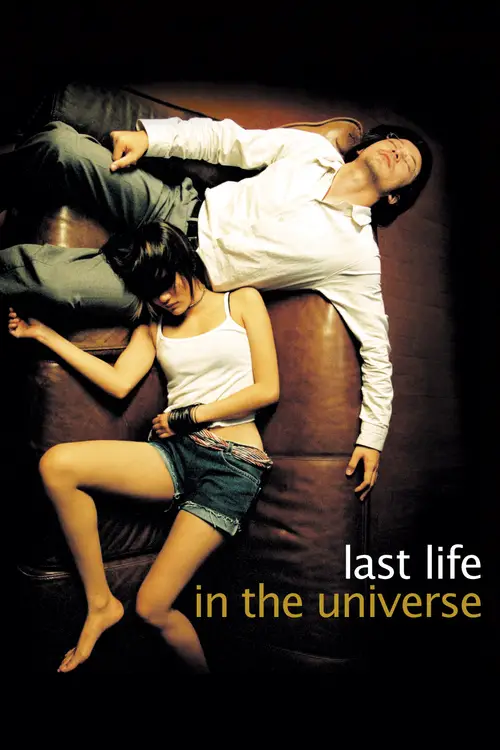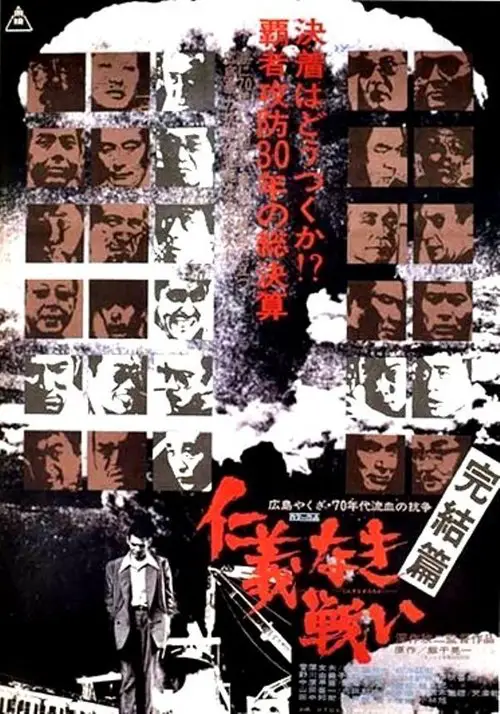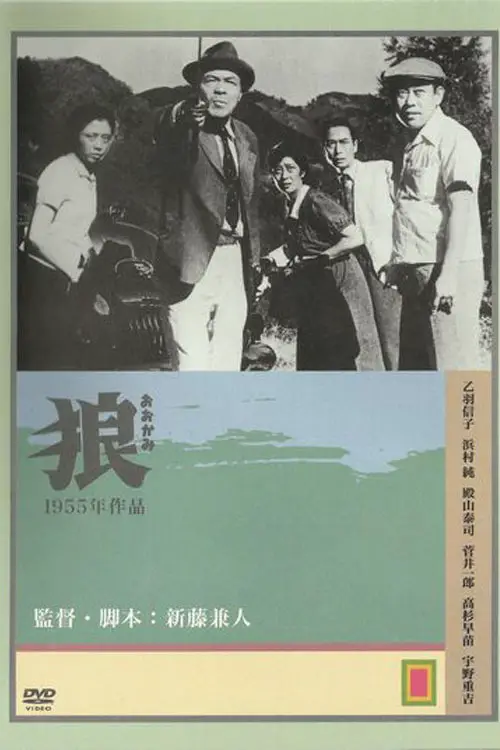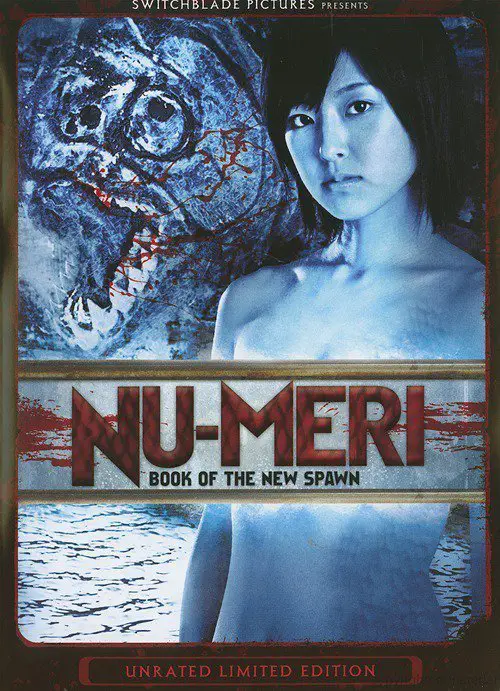Dead Sushi (2012)
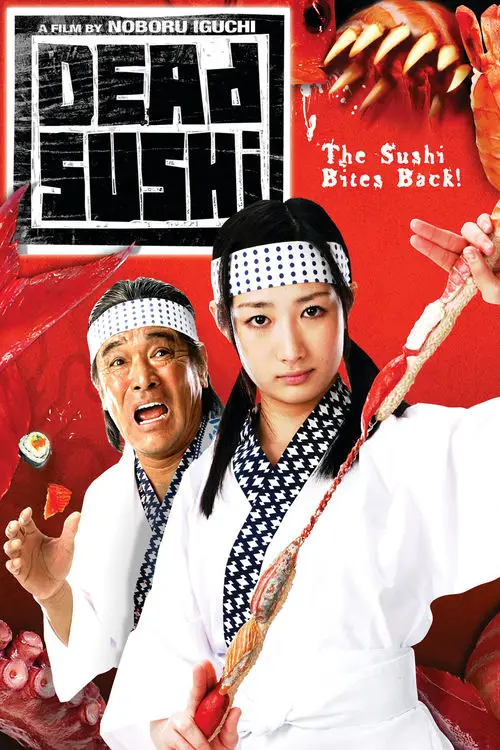
Similar movies
Ramlee (Afdlin Shauki) is a down and out Malay boy who can't seem to hold down a job, much to his Mother's (Kartina Aziz) disappointment. Out of a job and out of money, he stumbles across a challenge by sushi by sushi restauran owner Honda (Patrik Teoh) to "eat all you can for free food - within a time limit". Hungry adn desperate, Ramlee attempts the challenge, and fails. In compensation, Honda lets Ramlee take a job at the restauren to pay off his due. Ramlee becomes a member of the Boleh Sushi shop staff, along with Haris (Awie) and Andy (Radhi Khalid). One day he learns that part of hiss obligation is to take part in the Malaysia Sushi Association Amateur Sumo Wrestling Championships held by the local Japanese owners of sushi restaurants.
Katsuhito Ishii ("Funky Forest: The First Contact" and "The Taste of Tea") takes on the story of Junichi--a timid third grader who can't muster the courage to return an eraser he borrowed from his secret crush--and turns it into a children's rock 'n' roll comedy. Junichi's world is turned upside down as apprentice teacher Anna-sensei (Hikari Mitsushima) scraps her lesson plan to show the rambunctious students about life as an adult. With Anna's unorthodox style, Junichi and his friends are able to gain confidence and pursue their goal of putting on a big concert. Co-directed with Kanoko Kawaguchi and Atsushi Yoshioka, "Hello! Junichi" brings out the kid in adults and lets kids be kids. Boasting Ishii's signature dance numbers and Yoshiyuki Morishita (the "Japanese Steve Buscemi") as the band's homeroom teacher, it's a unique experience built for future and current movie maniacs.
In this pitch-black action comedy by Kihachi Okamoto, a pair of down-on-their-luck swordsmen arrive in a dusty, windblown town, where they become involved in a local clan dispute. One, previously a farmer, longs to become a noble samurai. The other, a former samurai haunted by his past, prefers living anonymously with gangsters. But when both men discover the wrongdoings of the nefarious clan leader, they side with a band of rebels who are under siege at a remote mountain cabin. Based on the same source novel as Akira Kurosawaâs Sanjuro, Kill! playfully tweaks samurai film convention, borrowing elements from established chanbara classics and seasoning them with a little Italian western.
Battlefield Baseball is a tough game--it doesn't end until all the members on the opposing team are dead. In this game the Gedo High team is composed of blue-faced zombies, and their opponents on the Seido High team know they don't have a chance at beating them unless they can bring back a star pitcher who has a lethal pitch called the Super Tornado, but who has hung up his cleats and has no desire to return to the game.
Uehara Jiro, in the sixth year at elementary school, is from a family of five; his parents who are both ex-extremists, his elder sister and a younger sister. Children look coldly at their father, Ichiro (Toyokawa Etsushi), who does not work but is quick at lashing out for anything illogical. One day, Jiro snaps at a junior high school student in the neighborhood who ridiculed his parents and causes a violent incident. Being tired of all the fuss made by the school and the response from the child welfare, the Uehara family moves to the island of Iriomotejima, father's hometown. However, the island is in the midst of a row over a development plan to build resort facilities, and the family is sucked into the mayhem. Ichiro and his wife Sakura are arrested, but they break loose. They are forced to live a life as fugitives, and are unable to live with their children. The children, however, understand that their parents do not want to succumb to the establishment and support them.
In "Hot Summer Days" a hot summer heat wave engulfs the Chinese territory, while the movie covers the lives of various characters during that time. There's chaffeur Wah who tries to woo foot masseur Li Yan via text messages, air conditioner repairman Ah Wai interested in biker girl Ding Dong, a master sushi chef who spurns the love of writer Wasabi, country hick Da Fu who tries to impress teddy bear factory worker Xiao Qi Angela Baby by standing out in the hot noon sun for 100 days, & photographer Leslie Guan & assistant attempting to track down a woman who they believed cursed the photographer into blindness ...
In ancient Rome, bathhouse architect Lucius (Hiroshi Abe) becomes famous with designing the original "thermae" (bathhouse). He receives an order to build a thermae in the colosseum to help gladiators recover from their wounds, but faces difficulties. Thus, Lucius travels again to modern day Japan through the time slip. He meets Manami (Aya Ueto) again, who is now a reporter for a magazine which covers bathroom. With the help of the flat face Japanese tribe, Lucius again designs a new thermae. Meanwhile, Emperor Hadrian (Masachika Ichimura) wants to keep the peace with the thermae, but the Senate wants to extend the land by using force. Emperor Hadrian and the Senate now have a confrontation and Rome becomes divided.
THE WALKING DECEASED is the Scary Movie of the zombie genre, ripping on the biggest and best of zombie pop-culture, arguably the most crazed genre in the world. The story follows a group of survivors from all walks of the apocalypse â an idiotic Sheriff with definite coma-induced brain damage, his hardass son and a hobo with only a crossbow to stave off the walking dead, four squabbling friends forced to survive this zombieland together, and a lonely zombie who just needs love to fully regain his warm body â who leave their once-safe mall hideout in search of the rumored Safe Haven Ranch, a refuge untouched by the zombie virus that has ravaged humanity. But despite the comforting name, they discover that this sanctuary may not be as welcoming as advertised.
In this live boosh presentation you will see Howard wrestle with the problems of the universe in tiny shorts while Vince gets his hair extra big and flounces about, Bob fossil's dance moves will turn you on then anger you over and over until you puke. You shall then weep with salty joy as Bollo and Naboo move about and say stuff in their own special way. The Boosh are mighty and sailing at you, strap your eyes onto your brain double tight cos its gonna get choppy like electric sushi.
Shoko and Mutsuki get married to satisfy their worried parents, but she is well past the age at which a 'good' Japanese woman should marry, and he is in love with a young male college student. The film is less a realistic exploration of gay life than a fairy tale of three young Japanese trying to construct an alternative to the sexual and familial roles given to them by a society turning increasingly emotionally barren.L.
Leading a lazy life, Fumiya has been a university student for 8 years and owes money to loan sharks. One day, a man named Fukuhara comes to collect the loan, which Fumiya cannot pay. So Fukuhara makes a proposition: He will cancel the debt as long as Fumiya agrees to walk with him across Tokyo to the police station of Kasumigaseki, where he intends to turn himself in for a crime he deeply regrets. Not having much choice, Fumiya accepts the deal. Thus begins their journey which will lead them to various unusual encounters, most of all with themselves.
A corrupt businessman blackmails the lovelorn reprobate Atsushi into watching over his suitcase full of embezzled cash while he serves a jail sentence. Rather than wait for the man to retrieve his money, however, Atsushi decides to spend it all in one libidinous rushâfully expecting to be tracked down and killed.
Instructeur dans une compagnie aérienne, Yann Kerbec évalue la capacité des pilotes sur les simulateurs de vols dans des conditions extrêmes. Mais il a un problème : il a peur de l'avion, une peur panique liée à sa naissance et qui, dans sa jeunesse, l'a empêché de suivre la femme de sa vie au bout du monde.
Like Ernst Lubitsch, whom he studied, Gosho was an early experimenter in the narrative uses of sound (and silence). Japanâs first âall talkie,â this charming comedy lends itself to a natural use of sound. A playwright is distracted from his work by the din of a jazz band practicing next door. He goes over to complain but is totally disarmed by the lady of the house. The whole film plays on the presence of sound, from blaring horns and crying children to the duets our hero engages in with the neighborâs wife to the dismay of his own spouse. The film also demonstrates the growing importance of Western influences to the Japanese. American jazz, modern French painting, and Western dress are treated positively, if comically. But nothing quite prepares one for the closing duet of husband and wife singing âMy Blue Heavenâ on their Sunday outing with the children. Look for Goshoâs signature use of brief, separate shots, another influence from abroad. âBAM/PFA
JIRO DREAMS OF SUSHI is the story of 85 year-old Jiro Ono, considered by many to be the worldâs greatest sushi chef. He is the proprietor of Sukiyabashi Jiro, a 10-seat, sushi-only restaurant inauspiciously located in a Tokyo subway station. Despite its humble appearances, it is the first restaurant of its kind to be awarded a prestigious 3 star Michelin review, and sushi lovers from around the globe make repeated pilgrimage, calling months in advance and shelling out top dollar for a coveted seat at Jiroâs sushi bar.
Fish has spent six years in jail. Six years alone. Six years keeping his mouth shut about the robbery, about the other men involved. The night he is released, the four men he protected with silence celebrate his freedom with a congratulatory dinner. The meal is a lavish array of sushi, served off the naked body of a beautiful young woman. The sushi girl seems catatonic, trained to ignore everything in the room, even if things become dangerous. Sure enough, the four unwieldy thieves can't help but open old wounds in an attempt to find their missing loot.
Willy the whale is back, this time threatened by illegal whalers making money off sushi. Jesse, now 16, has taken a job on an orca-researching ship, along with old friend Randolph and a sarcastic scientist, Drew. On the whaler's ship is captain John Wesley and his son, Max, who isn't really pleased about his father's job, but doesn't have the gut to say so. Along the way, Willy reunites with Jesse
Years of working in the food industry have made Juana, a working-class Latina, a chef of speed and skill. Searching for financial stability, she stumbles into a high-energy, male-dominated Japanese cuisine kitchen. The new atmosphere re-ignites her passions for food and life and makes her hungry to get mixed up in the flavors of this new world.
In a valley, with a dense growth of trees, a baby is killed. The baby's mother Satomi is arrested as the prime suspect. The police also learn that Satomi is involved in a romantic relationship with her next door neighbor Ozaki. The information was provided by the neighbor's lover Kanako. Meanwhile, magazine reporter Watanabe, who is covering the story, discovers the shocking fact that Ozaki was involved in a rape case 15 years ago. Even more shocking, the victim in the rape case is Kanako.
By mistake, film director Ham Chunsu arrives in Suwon a day early. With time to kill before his lecture the next day, Chunsu stops by a restored, old palace and meets an artist named Yoon Heejung. Together, they go to Heejungâs workshop to look at her paintings, have Sushi with Soju for dinner, and get close. Later, they go to another café and have more drinks with Heejungâs acquaintances. When asked if he is married, Chunsu is forced to reveal the fact that he is, and Heejung gets deeply disappointed⦠In the second part of the film, a similar story of âmeeting and partingâ unfolds. Here, the womanâs voice seems intimidated and her body crouched. The man and the woman go about to the same places, but this time the man strips himself and what not.
After being cruelly set up by a crooked detective named Sugimi (Isao Natsuyagi), whom she loved, Nami Matsushima (aka Matsu the Scorpion) (Meiko Kaji) is sentenced to do hard time in a women's prison, which is run by sadistic and horny male guards. There are 700 other prisoners, making Matsu number 701. Her crime was making a failed attempt to stab Sugimi on the steps of the Tokyo Metropolitan Police Headquarters because he used her to win favor with the Yakuza. While in prison she meets inmates like Yuki Kida (Yayoi Watanabe) who was committed for fraud and theft, Otsuka (Akemi Negishi), jailed for burglary and extortion, and Katagiri (Rie Yokoyama) who has been impounded for arson and illegally disposing of a body.
A veteran samurai, who has fallen on hard times, answers a village's request for protection from bandits. He gathers 6 other samurai to help him, and they teach the townspeople how to defend themselves, and they supply the samurai with three small meals a day. The film culminates in a giant battle when 40 bandits attack the village.
Fung, aka âKing of the Gigolosâ, is now âretiredâ and running a nightspot in Hong Kongâs Lan Kwai Fong entertainment district. He takes on a rare new client, Monica, who has reluctantly turned to prostitution to pay her motherâs medical bills. Having been referred to him for carnal guidance after a customer labels her a âdead fishâ, Monica inevitably falls for Fungâs charms.
Tsugumi Dozono (Nana Eikura) works at a large electronics company in Tokyo. She likes to spend long vacations at her grandmotherâs house in the countryside. One day, her grandmother passes away and Tsugumi Dozono decides to live in her grandmother's house while working from home. She finds a strange middle-aged man in the house. The man's name is Jun Kaieda (Etsushi Toyokawa). Jun Kaieda tells Tsugumi that he is her grandmotherâs ex-student and her grandmother gave him a key to the annex house. Tsugumi, who does not know the exact relationship between her grandmother and Jun, begins to live with him.
Young lovers Mari and Atsushi elope to the Big City that is Tokyo, unfortunately when they run out of money, both need to make some harsh choices. Mari stumbles upon selling âParty Ticketsâ (for Swingers parties to be exactâ¦), before being drawn into the sex industry to make ends meet. Meanwhile, Atsushi becomes a âScout Manâ â effectively a recruitment agent for the sex industry (i.e. procuring young women for nude modelling, porn movies etc.). The consequences of their respective decisions will ultimately take itâs toll on their young lives.
People mysteriously start receiving voicemail messages from their future selves, in the form of the sound of them reacting to their own violent deaths, along with the exact date and time of their future death, listed on the message log. The plot thickens as the surviving characters persue the answers to this mystery which could save their live
The story, set in the heady post-war 50s into the early 60s , revolves around a love triangle between Tomoko, long playing the mistress to married older writer Shitto (Kaoru Kobayashi) and the new stud who comes into her life, Ryota Kinoshita (Gou Ayano). Tomoko (Hikari Mitsushima) is sick and tired of her relationship with writer Shingo, who is married and has children. Shingo is a talented writer, but has yet to be recognized by the public. Tomoko then enters into a sexual relationship with younger man Ryota Kinoshita, but Tomoko is not satisfied.
A group of terrorists has taken hold of the largest dam in Japan. They also capture the workers as hostages, and demanded $5 billion yen from the government with a 24 hour deadline in exchange for the lives of the hostages. To make things more complicated, there was a snowstorm and no one can get in or out near the area. Fortunately, the terrorists did not capture Togashi, the dam controller, and he is the only person who can rescue those hostages from the terrorists...
Antardwand (Hindi: à¤
à¤à¤¤à¤°à¤¦à¥à¤µà¤à¤¦à¥à¤µ; English translation: Inner conflict) is a 2010 Indian film co-written, produced and directed by Sushil Rajpal. The film stars Raj Singh Chaudhary and Swati Sen in the leading roles while Vinay Pathak and Akhilendra Mishra play supporting roles. Made on a budget of 1.5 crore (US$299,250), the film is based on the practice of groom kidnapping that is seen in western Bihar and eastern Uttar Pradesh of India. The film won the National Film Award for Best Film on Social Issues at the 2009 National Awards. It had its commercial release on August 27, 2010.
Shimizu Ryuichi (portrayed by the wonderful Tsumabuki Satoshi) is a shy and lonely day laborer looking for love. He aimlessly spends time corresponding with girls via telephone dating services and going on random encounters with girls looking for spending cash. His world is shattered one day when he is involved in the murder of one of his former encounters, the sweet-faced Ishibashi Yoshino (pretty Mistushima Hikari)who after being jilted by playboy Masuo Keijo (Okada Masuo playing against type)berates and mocks the troubled loner.
Toward the end of World War II, middle-aged soldier Keita is entrusted with a postcard from a comrade who is sure he will die in battle. After the war ends, Keita visits his comrade's wife Yuko and bears witness to the tragic life she has led. This year's Oscar entry from Japan finds SHINDO in top form and his 49th and reportedly last film as fresh and poignant as ever. (from imdb)
Suffering from writer's block and some curious ailments, Reiko (Nakatani Miki) moves to a countryside villa at her editor's (Nishijima Hidetoshi) beckoning to quietly work on her next novel. Her new environment turns out to be anything but peaceful though when she sights her next door neighbor, professor Minoru Yoshioka (Toyokawa Etsushi), surreptitiously moving a thousand-year-old mummified corpse into his university lab for research. Though Reiko and Yoshioka get off to a bumpy start, the two grow closer over time, enough so that Reiko eventually agrees to hide the mummy in her home. But the mummy isn't the only unlikely guest in her walls, as a female ghost also lurks disturbingly in the background. At first seemingly a quick trick of the eye, she grows clearer and more distinct by the day.
An obsessive-compulsive Japanese librarian living in Bangkok spends most of his days contemplating suicide in his lifeless apartment. His life changes when he witnesses the death of Nid, seconds before he was about to jump off a bridge. This brings him in contact with Nid's elder sister Noi - these two lost and lonely souls help each other find the meaning to their meaningless existences.
Battles Without Honor and Humanity: Final Episode is part five and the final installation of a series of yakuza films directed by Kinji Fukasaku. In the wake of a big police crackdown, Akira Kobayashi's icily sun- glassed Takeda attempts to transform the Hiroshima yakuza families into a legitimate political organization: The Tensei Coalition. When the young Matsumura ascends to the chairmanship of the coalition, the older, hardened yakuza led by Jo Shishido (BRANDED TO KILL) seize one last opportunity to stir up chaos and bloodshed. Culminating with the arrests, deaths, or retirement of the first postwar yakuza generation, this milestone series draws to an ambivalent close.
Based on an actual event. A cash delivery truck is ambushed and robbed in a quiet highway. The perpetrators are neither gangsters nor habitual offenders. Instead they are good-hearted and law-abiding citizens. These five persons are rookie insurance salespersons who find it impossible to meet their quotas or get work elsewhere. Filmed in a sober style and featuring eyepopping deep-focus photography by Takeo Ito, Wolf depicts a period of deep recession following the end of the American occupation of Japan. Shindo's austere use of dialogue and music makes this film a far cry from the sentimentality of his previous films like Miniature or Ditch. Long stretches of wordless scenes make Wolf a foreshadow of the entirely wordless The Naked Island, made just 5 years after.
There's something wrong at the Pacific Institute...something wrong and evil. For young Mari, whose family has worked in the finishing industry for generations, her studies in advanced genetics and marine bio-engineering represent not just her own future, but that of her entire family. But when her friend Nanako is mysteriously discovered dead, Mari's dreams turn into her worst nightmares! Because not only was Nanako's body covered with fishbites, she was also growing scales! Now, as a new wave of deaths and tragedies engulf the Pacific team, it becomes all too clear that someone....something...has a new future in mind for all human kind. For centuries man has taken from the ocean, never dreaming what might lurk beneath the waves; now the revelation has begun...and this time, we're the sushi!
© Valossa 2015–2025
| Privacy Policy
